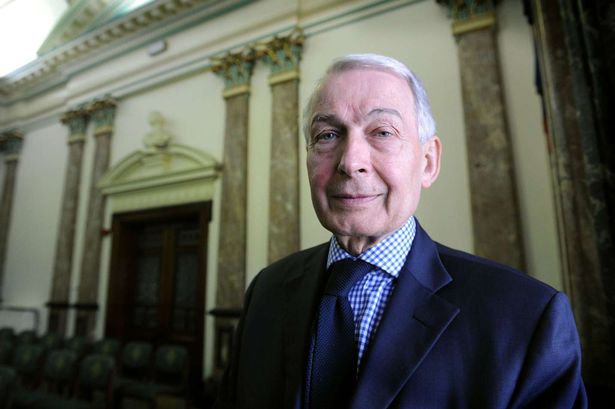A senior labour politician has called for a “radical rescue plan” to save the NHS from catastrophe. Writing in the Mail on Sunday, Member of Parliament Frank Field has said that unless drastic action is taken, a disastrous financial shortfall will lead to another Mid Staffs’ style scandal, in which elderly patients died of thirst lying in hospital beds.
But, he says, neither the Conservatives nor the Labour party currently have any serious plans to tackle the problem. Instead both are relying on “sticking plaster” solutions to see them through the next general election.
Mr Field has called for the NHS to be wholly unattached from the main political system, and instead set up as an independent national mutual, of which the entire population would be members. He has also called for National Insurance to be raised to cover the financial shortfall, and for private sector involvement to keep cost down.
“Each winter, the NHS crisis takes the same form: A&E departments across the country overwhelmed, the target for patients to be seen within four hours broken, operations cancelled. … Each time, doctors and nurses struggle through. But each time, it takes us one step closer to a nightmare scenario – the collapse of perhaps the nation’s most cherished institution,” he said.
“In my view, nothing short of a revolution is required – a radical rescue plan to save the NHS from financial meltdown and to take it out of day-to-day party political control.”
Mr Field points to the “well known” findings that, on current terms, the NHS will be facing a funding shortfall of £30 billion by 2020. The causes he cites are also familiar: an ageing population, more treatments becoming available, inflationary pressures which “always hit the NHS harder than much of the rest of the public sector.”
And he admits that, whoever holds the keys to Downing Street after the next election, further austerity measures await. “Therefore, without radical treatment, the prospects for the NHS are not just bleak, they are catastrophic. If nothing is done, within a few short years, the health service as we know it will have ceased to exist.”
Detailing the catastrophe which awaits, he says: “A&E departments will not just be overstretched, they will be unrecognisable. Instead of queues reaching to the waiting room doors, they will be stretching into the streets. Waiting lists will grow like Topsy and slashing the number of operations will be standard.
“GP services will have to be drastically reduced as their budgets are slashed. A growing number of hospitals will go bankrupt and staff, dedicated and highly trained, laid off.
“In other hospitals, regimes reminiscent of the disgraceful events in Mid Staffordshire will be in place, with patients left un-nursed and unfed for long periods of time.
“Such a scenario, one would have thought, would now be igniting the most intense debate between the Tory and Labour parties on how this catastrophe can be averted.
“But that thought would be wrong. Both major parties hope to get past May 7 without any serious debate with you, the electorate, on the existential crisis facing our NHS. If they are planning to avert this national calamity, it is being kept well under wraps.”
Labour have already said that they will cover the shortfall through money raised from a new Mansion Tax, a levy on tobacco products and a crack-down on hedge funds “but this will simply not cover the £30 billion deficit,” admits Field.
Instead he calls for NHS funding to be “revolutionised – starting with a serious increase in National Insurance contributions … I suspect both parties know such a genuinely radical move is necessary; they are just scared of being the first to say so.”
Field believes that the public will support making further contributions to the NHS if it means keeping the system in place, pointing to one poll showing that 60 percent of the public are willing to pay more.
According to Field, raising National Insurance by one percent would deliver an extra £15 billion over the next five years. He concedes that “to save the NHS, we have to go further”. To save the NHS, Field proposes to split the organisation away from Westminster, wrenching control from the politicians and setting up a new mutual run by the people, with official positions subject to elections.
“Pushing through reforms would be a key part of that new NHS mutual’s responsibilities and would deliver the productivity increases needed to meet the other half of the NHS deficit. And those reforms are crucial as the new NHS must realise more quickly than the old version that it cannot always expect taxpayers to stump up any money for any bill presented,” he says.
In particular, “It must also recognise that it can no longer deliver a world-class service through institutions devised by the Victorians for an age when there were few treatments and even fewer drugs. This age of the dominance of hospitals has to end. Many health staff are better located in easy-to-access health centres where treatments can take place at most within days.”
Field also calls for private sector involvement, saying “any NHS true to its first principles of treatment free at the point of use will follow the lead of the last Labour Government and use the private sector to gain a better deal for us as patients and taxpayers.”
He concludes “So, a revolutionised NHS outside day-to-day control of politicians and free to deliver the best treatment in the world for decades to come. Unthinkable? Too radical even to contemplate? Tell that to the people who did the unthinkable and set up the NHS in 1948.

COMMENTS
Please let us know if you're having issues with commenting.